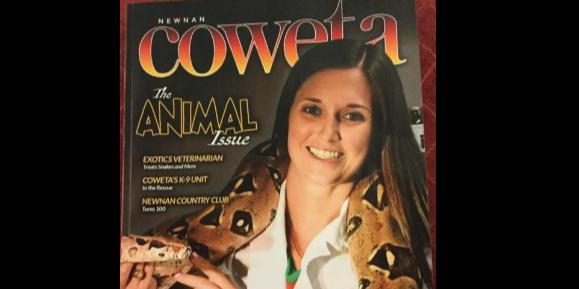
Holiday Hazards in Exotic Pets
- Electric cords
Most people enjoy putting up decorations during the holidays, including lights, Christmas trees, or other electric decorations. Electrical cords can very dangerous for a number of reasons, the most obvious being the risk of electrocution. These cords can look like a chewy treat to some of our small mammals and when a live wire is chewed on, it can cause electrocution, severe oral burns, and even death. Also, many wires contain heavy metals like zinc and copper, which can cause life-threatening toxicities. So make sure to “pet-proof” all of the rooms your pet will have access to by securing wires and monitoring your pet at all times.
- Chocolate, treats, and more
It seems like everything we eat during the holidays has some sort of chocolate or sugary treat in it. Many of us love chocolate, as do some birds. But chocolate contains substances such as caffeine and theobromine, which can be toxic to birds. Generally, the darker and more bitter the chocolate, the more dangerous it is to your pet. Chocolate can cause a digestive upset like diarrhea or even become as serious as seizures. High sugar foods, like yogurt drops, raisins, and seed-based treats, contain high levels of sugar and fat that can cause GI upset in our small mammals. Small amounts of fresh vegetables, such as carrots or bell peppers, are more appropriate treats for rabbits, guinea pigs, and chinchillas. Ferrets, which are carnivores, and hedgehogs, which are insect-eaters, are better offered high-protein treats such as low-salt deli meat, kitten food, or mealworms.
- Well-meaning family members
Exotic animals have very specific care as well as ways to be handled. It is important to teach family members, especially young children, about how to hold your pet in order to prevent accidents. Many small mammals are jumpy and get very stressed by loud voices and quick movements. Birds may be startled by a lot of activity in their usual space. It is important to provide your pet with a quiet, safe space during the holidays when a lot of friends and family may be visiting. Young children should be supervised at all times when handling an exotic pet and taught how to handle them gently and with respect.
- Poisonous Plants
There are many plants that can be toxic to birds and small mammals if ingested, and many of these plants are popular during the holiday season. Mistletoe, poinsettias, holly, lilies, yew, and ivy should not be kept around exotic pets. It is a safer option to get the fake variety of these plants to display in your home.
- Candles & Oil Diffusers
Candles, oil diffusers, and perfumes can be toxic to the respiratory tract of birds as well as small mammal species. Avian respiratory tracts are very sensitive to aerosolized scents and the chemicals can damage their delicate air sac system. Rabbits are obligate nasal breathers and strong scents can affect their ability to breathe. Also, flames from a lit candle can be dangerous if a bird flies too close, as feathers are extremely flammable and can catch fire. It is strongly advised to use other options like flameless, scentless, battery-operated candles.
- Overly friendly pets
Dogs and cats make friends with our exotic pets and try to play with them as they would each other. Sometimes they don’t realize how rough they are playing or how hard they are biting when interacting with our exotic pets. Many dogs and cats have inadvertently caused fatal injuries to their pet mates just by trying to play with them. It is especially difficult during the holidays when you have friends and family members bringing their pets over as well, who are completely unfamiliar with your exotic pets. Naturally, dogs and cats may see our exotic pets as prey. Even the most gentle of dogs and cats may instinctively try to hunt small mammal prey. Supervised play or separation all together are highly recommended.

